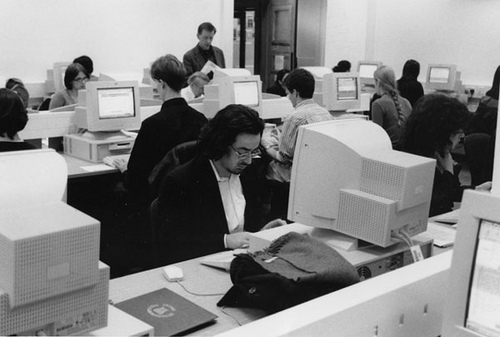I know the title for this post is really boring (especially when compared to my friend’s UFC-inspired fight references in academic philosophy papers), but the topic for today is actually very trendy. The buzzworders are all over it.
In June 2011, media worldwide started reporting on an interesting event: the UN ‘had declared internet access a human right’, and ‘cutting access to it (henceforth) violated international law’. The event that triggered these headlines was the publication of the latest report of the Special Rapporteur for the Freedom of Opinion and Expression. Coincidentally, UN press releases and summaries of this report didn’t say that the internet had been declared a human right, nor mention violations of international law.
The easy explanation comes when we look for the origin of these statements in non-UN media. The very first source I could find was an article published by a correspondent in Geneva on the 6th of June, three days after the report was presented at the UN HRC. This article, however, didn’t include the ‘internet access as a human right’ and ‘violation to international law’ paragraph that most publications, from TIME to Mashable, did. The first inconsistencies showed up on Asian publications on the 7th of June, and got republished worldwide.
The buzzworders found validation for their work in this ‘recognition’ (I found a few ‘Take that, Gladwell!’ comments flying around); UN haters found more material to complain about its uselessness; the expected ‘So can I stop my payments to (local internet provider) now?!’ got posted at least five times in every source. A mountain of comments was generated over a small pile of, well, fake news.
Having found the explanation for these headlines, I made it my job (or my final paper topic for a political philosophy and human rights class) to find out what the report did say to incite this media coverage. I mean, we know journalists don’t read reports (or Geneva press releases), but the Special Rapporteur surely mentioned the magic buzzword that hundreds of tech media interns have to hunt for on Google News everyday.
Since I got a good grade for the paper I wrote on the topic, I will paraphrase my findings in this post. And worry not: there are no imminent allusions to Rawls vs Nozick in this paper.
Let’s start with a little thought experiment.
(photo courtesy of the LSE Library)
Internet and human rights
So let’s say you are wondering how exactly to research a possible relationship between Internet access and human rights. There are countless research questions that could get you started, but I think one of the most basic and intuitive ones is the following:
Is internet access something entirely new, not analogous to anything we’ve seen before, and do we therefore need to think of it as a brand new right on its own?
or
Is internet access in fact analogous to things that have been covered in human rights documents before?
Many people take the first path – among them, the supporters of the inaccurate headlines that prompted this post. They think that the Internet is such a novel tool that it is in its own league, and deserves special provisions in human rights documents. The problem faced by the supporters of this stance is that they need to justify why exactly it deserves this special treatment, and especially why other tools that are given similar use, like mobile communication, don’t. If no distinction is traced, about every communicative tool can be declared a human right, and this would achieve nothing but the further degradation of this term.
Others (me included) take the second path. Even though we may concede that the Internet stands out from other communication tools for many reasons, we think it is analogous enough to tools that are already contemplated by many documents that are fundamental to the human rights debate. The problem faced by the supporters of this stance: they need to give arguments that not only show the similarity of the Internet to other communication tools, but also that prove that the legal provisions contemplated for those are to be equally extended to the Internet.
This is point where we need to analyze where the UN tradition stands in regard to this dilemma. (And to jump to post no. II)

